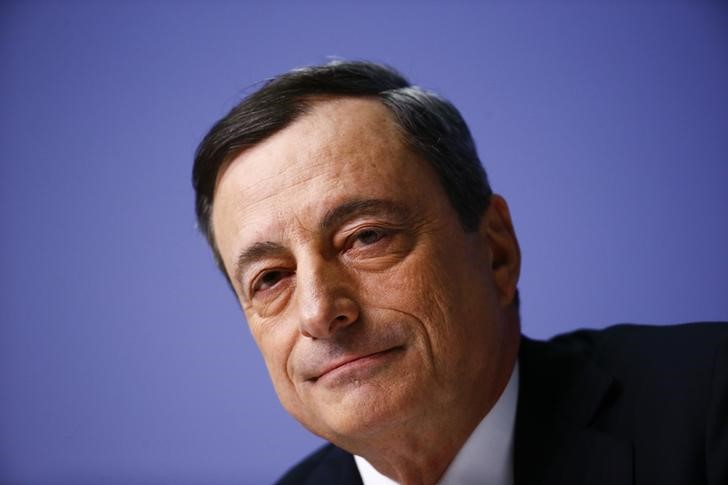(Updates and recasts throughout, changes dateline, byline,
previous LONDON)
* Wall St falls as energy, materials shares drag
* Commodities slide sharply
* US-German 5-year bond yield spread widest since 1999
By David Gaffen
NEW YORK, Nov 12 (Reuters) - Government bond yields in
Europe and the United States fell on Thursday, driven lower by
signals of more monetary policy stimulus out of Europe, while
stocks fell, led by sectors most influenced by weak global
demand trends.
The dollar had been rallying against the euro after a
typically dovish address from ECB head Mario Draghi, suggesting
additional efforts to boost growth in Europe. But the currency
markets shifted after St. Louis Fed President James Bullard,
generally a more hawkish member of the U.S. Central Bank,
suggested industrial nations may be headed into an era of
permanently low rates.
"Should we find ourselves in a persistent state of low
nominal interest rates and low inflation, some of our
fundamental assumptions about how U.S. monetary policy works may
have to be altered," Bullard said in prepared remarks.
That drove buying in the U.S. Treasury market, where yields
have been steadily rising in anticipation of a Fed rate increase
coming in December. The divergence in monetary policy has also
pushed the dollar higher of late.
Bullard's comments come on a day when numerous Federal
Reserve members are scheduled, particularly New York Fed
President William Dudley.
The dollar's recent gains have helped push crude oil to lows
not seen since late August and copper to a six-year low. Oil was
down again Thursday, with U.S. crude CLc1 dropping more than 1
percent to $42.43 a barrel, and Brent crude LCOc1 slipping to
$45.33 a barrel, off by 1 percent.
Weak global demand has sapped interest in commodities
markets. The U.S. stock market was also weak, led down by energy
and materials shares, directly affected by global demand.
The MSCI All-World Index .MIWD00000PUS lost 0.6 percent,
with the heaviest losses in European shares. The pan-European
FTSEuroFirst 300 .FTEU3 was down 1.4 percent at 1,487 points.
The Dow Jones industrial average .DJI fell 141.27 points,
or 0.8 percent, to 17,560.95, the S&P 500 .SPX lost 11.54
points, or 0.56 percent, to 2,063.46 and the Nasdaq Composite
.IXIC dropped 14.48 points, or 0.29 percent, to 5,052.54.
Copper futures in London hit a 6-year low of $4,851 a tonne
CMCU3 and platinum hit its lowest since late 2008 at $868.75
an ounce XPT= .
In an address to the European Parliament, Draghi said
inflation dynamics had somewhat weakened and that a "sustained
normalisation" of inflation could take longer to achieve than
thought.
"Although the debate at the ECB seems to be far from over,
the fact that Draghi made these comments in a high-profile
setting suggest that he is confident that the majority of the
ECB council will support him," said Holger Schmieding, chief
economist at Berenberg Bank in London.
German 10-year yields fell 1 basis point to 0.60 percent
DE10YT=TWEB , having opened the day higher. All other euro zone
yields were down on the day.
Expectations for ECB easing are in sharp contrast to those
for U.S. monetary policy. Most investors are betting that last
Friday's stellar U.S. employment report has set the seal on the
Federal Reserve raising rates at its meeting next month.
Illustrating that divergence, the gap between U.S.
US5YT=RR and German five-year yields DE5YT=RR rose to 181
basis points, the highest since 1999.
The dollar index .DXY , which tracks the currency against a
basket of six major peers, edged up 0.1 percent to 99.15, moving
back towards a seven-month peak of 99.504 scaled on Tuesday.
The biggest move across major Asian markets was in the
Australian dollar, which jumped more than 1 percent to $0.7150
AUD= after figures showed the country's economy created 58,600
jobs last month.
(editing by John Stonestreet and Nick Zieminski)
